
Find Help
More Items From Ergsy search
-

How do I notify HMRC of someone’s death?
Relevance: 100%
-

Do I need to inform HMRC about the death?
Relevance: 65%
-
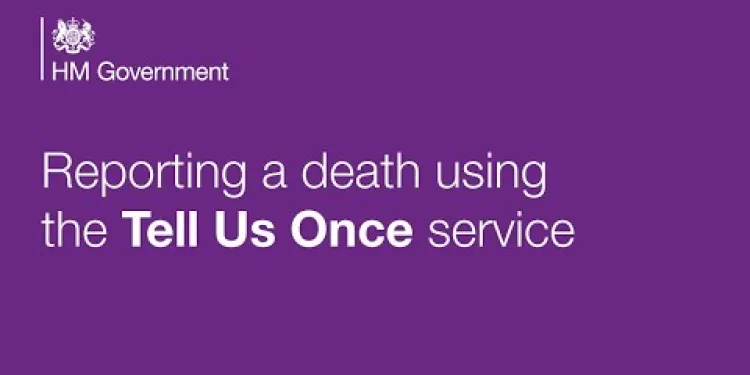
Reporting a death using the Tell Us Once service
Relevance: 59%
-

How do I notify people about the funeral?
Relevance: 58%
-
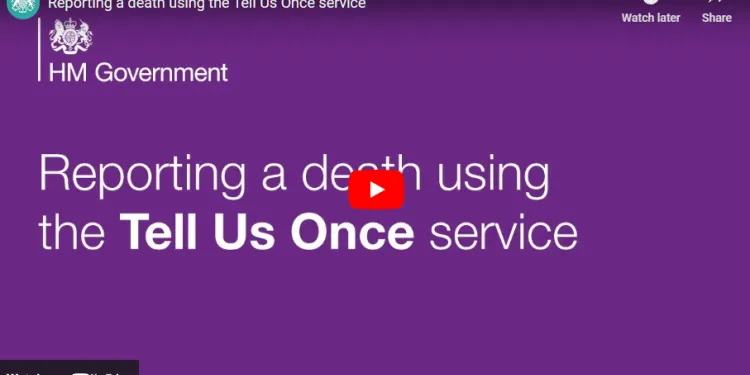
Reporting a death using the "Tell Us Once" service
Relevance: 56%
-
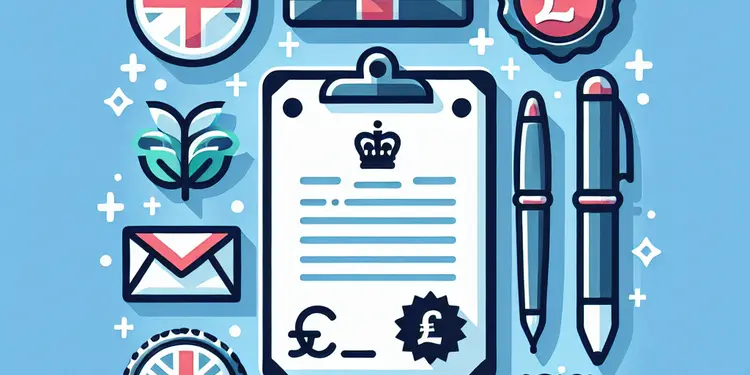
What documents are required to register a death?
Relevance: 53%
-
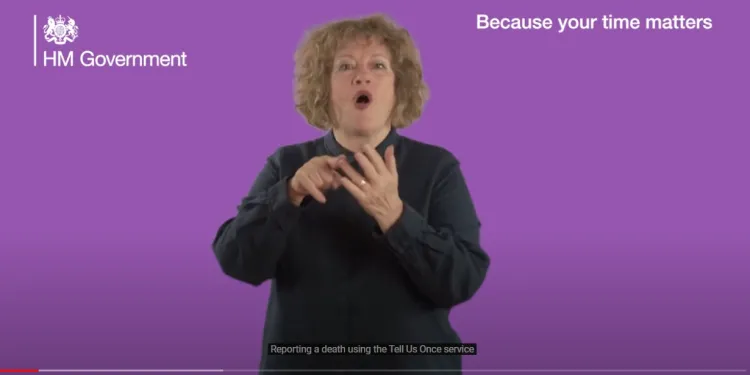
Reporting a death using the Tell Us Once service - Sign Language Version
Relevance: 51%
-

Alcohol-Related Deaths in Scotland
Relevance: 51%
-

The new death certification process in the UK
Relevance: 49%
-
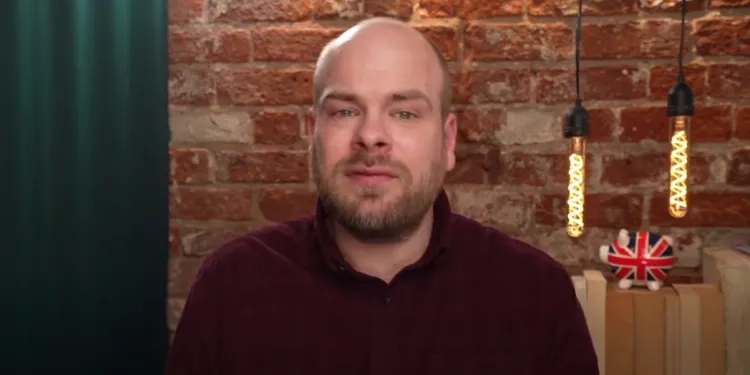
What Happens to Tax Debt After Death? (UK Laws)
Relevance: 47%
-

Can I take bereavement leave for the death of a close friend?
Relevance: 43%
-

What happens to the pension benefits upon the death of a firefighter?
Relevance: 41%
-

Does Thames Water notify customers before a hosepipe ban is enforced?
Relevance: 41%
-

How soon after death can a burial take place?
Relevance: 39%
-
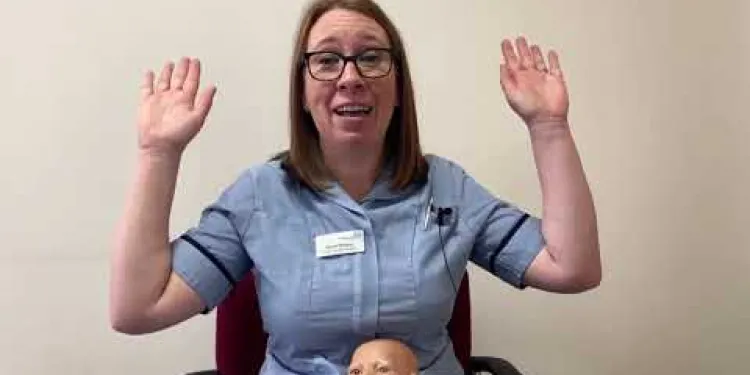
Safe sleeping and reducing the risk of Sudden Infant Death Syndrome (SIDS)
Relevance: 35%
-

How is Inheritance Tax (IHT) dealt with after death?
Relevance: 34%
-

What should I do if I need help managing the tax affairs of the deceased?
Relevance: 29%
-
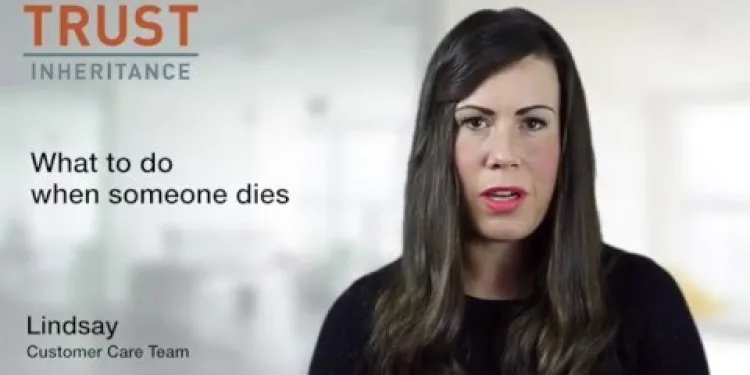
What to do when someone dies
Relevance: 29%
-
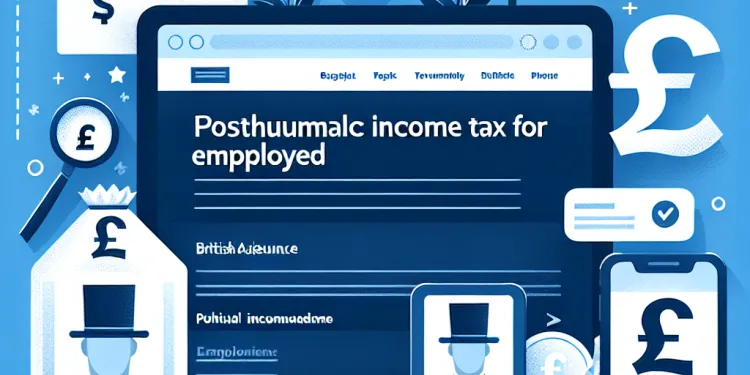
What happens to a deceased’s Income Tax if they were employed?
Relevance: 27%
-

How to arrange a funeral in the UK
Relevance: 25%
-

Are companies required to inform me if my data is breached?
Relevance: 20%
-

What historical event is the bubonic plague known for?
Relevance: 20%
-

Is it necessary to complete a final tax return for the deceased?
Relevance: 20%
-

What is the first step in arranging a funeral in the UK?
Relevance: 20%
-
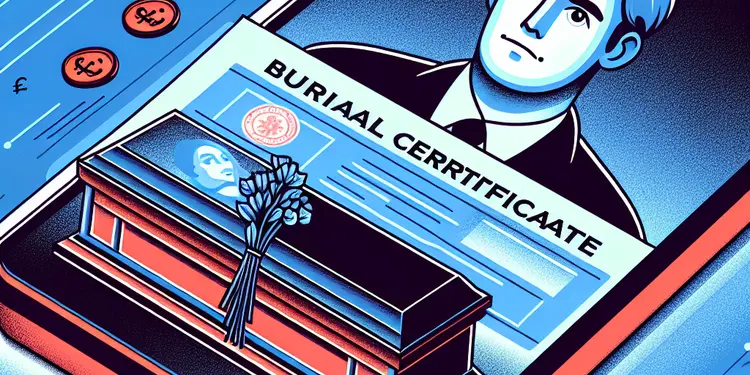
What is a burial certificate?
Relevance: 18%
-

What is the seven-year rule relating to inheritance tax?
Relevance: 18%
-

What documentation might I need for bereavement leave?
Relevance: 18%
-

What is the '7-year rule' in Inheritance Tax?
Relevance: 17%
-

Will I get a notification once my payment is made?
Relevance: 17%
-
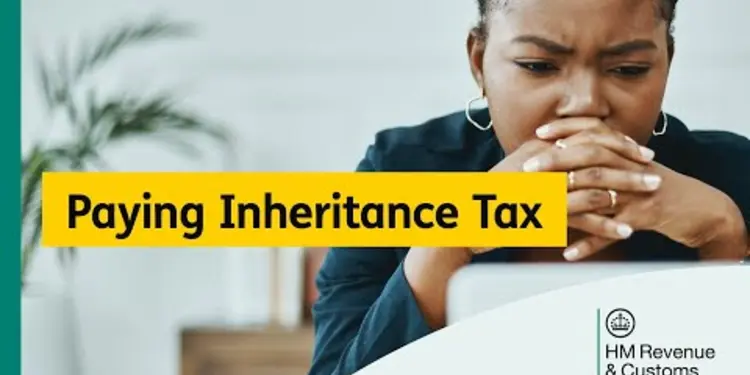
How and when do I pay Inheritance Tax when someone has died?
Relevance: 17%
-

How long does the cremation process take?
Relevance: 17%
-

What if I've moved since the tax year ended?
Relevance: 17%
-

What is bereavement leave?
Relevance: 16%
-
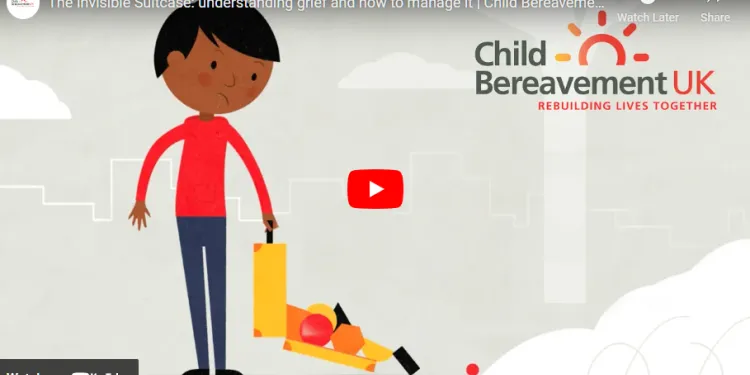
Child Bereavement
Relevance: 16%
-

How does a breached company manage the situation?
Relevance: 16%
-

What is the role of an executor in handling tax debts?
Relevance: 16%
-

What assets are subject to inheritance tax?
Relevance: 16%
-

Does the value of gifts affect Inheritance Tax?
Relevance: 16%
-

How should I request bereavement leave?
Relevance: 15%
-

What is the mortality rate of untreated bubonic plague?
Relevance: 15%
How to Notify HMRC of Someone’s Death
Informing HM Revenue and Customs (HMRC) about the death of a loved one is an important responsibility which forms part of the administrative tasks after a death. This notification ensures that the deceased's tax affairs are properly closed and any tax refunds or liabilities are accurately handled.
Why Notify HMRC?
When someone passes away, notifying HMRC is crucial to appropriately manage their tax records. The process helps to stop any further tax communications in the deceased’s name and addresses any outstanding tax matters. If the deceased was self-employed, receiving a state pension, or had any unfinished tax returns, notifying HMRC is particularly essential. Additionally, it helps in handling any possible overpaid taxes or dealing with inheritance tax issues.
Who Should Notify HMRC?
The responsibility to inform HMRC typically falls to the executor of the will or the administrator of the estate. The person handling the estate should ensure that HMRC is aware of the death, so they can provide guidance on settling any outstanding tax obligations, dealing with tax refunds due, or arranging for tax payments from the estate. Family members or beneficiaries are not usually required to notify HMRC unless they are also the executor or administrator.
Methods of Notification
There are a couple of ways to notify HMRC of a person’s death. One efficient way is through the Tell Us Once service, which allows the deceased's details to be shared with various government services, including HMRC, in one go. If you register the death in England, Wales, or Scotland, the registrar will provide access to this service. This is generally seen as the fastest and most convenient method.
If the Tell Us Once service is not available, or if you prefer not to use it, you can directly contact HMRC. This can be done by writing a letter to their Income Tax department, providing them with necessary details such as the deceased's full name, date of birth, date of death, and their National Insurance number. The executor should also include their contact information and a copy of the death certificate if possible.
What to Expect After Notification
Once HMRC is notified, they might require further information about the deceased's estate to resolve their tax records. They may ask for the final tax return if the deceased was required to submit one, and the executor may need to provide details of the assets and income in the estate. It can take some time for HMRC to process this information and reply with details of any tax that might need paying or if a refund is due.
Ensuring that HMRC is promptly informed of a death helps in efficiently managing the deceased’s tax affairs, which is an essential part of closing out the estate. Doing so promptly can prevent unnecessary delays or complications in finalizing the estate and distributing assets to beneficiaries.
How to Tell HMRC About a Death
Telling HM Revenue and Customs (HMRC) when someone dies is very important. It helps to close their tax accounts and sort out any money owed or refunds due. It is one of the many tasks you need to do after someone passes away.
Why Tell HMRC?
When a person dies, it is important to inform HMRC. This stops things like tax letters being sent to the person who has died. It also helps with sorting out any tax money that is owed or needs to be refunded. If the person had their own business, received a state pension, or had not finished their tax returns, it is very important to let HMRC know. It also helps with any questions about taxes related to giving away the person’s things after they’ve passed.
Who Should Tell HMRC?
The person who needs to tell HMRC is usually the executor of the will or the person in charge of the estate. This person needs to let HMRC know about the death so they can help with any tax duties, get any refunds, or pay any taxes from the estate. Family members usually don’t need to tell HMRC unless they are also the executor or administrator.
How to Tell HMRC
There are a couple of ways to let HMRC know about a death. One easy way is to use the Tell Us Once service. This service lets you tell many government offices, including HMRC, all at once. You can use this service after you register the death in England, Wales, or Scotland. This method is quick and simple.
If you can’t use the Tell Us Once service, you can write a letter to HMRC. Make sure to include the person’s full name, date of birth, date of death, and their National Insurance number. The executor should also add their contact details and a copy of the death certificate if they can.
What Happens Next
After telling HMRC, they might ask for more details about the deceased person's estate to sort out any tax issues. They could ask for the last tax return if one is needed. The executor may also need to provide details about the money and assets in the estate. It can take some time for HMRC to get back with any taxes that need paying or refunds that might be due.
Letting HMRC know about a death quickly is important. It helps manage the deceased’s taxes efficiently, which is a key part of closing the estate. Doing this promptly can prevent unneeded delays or problems in giving out assets to heirs.
Frequently Asked Questions
What is HMRC?
HMRC stands for Her Majesty's Revenue and Customs, the UK government department responsible for tax collection, state support, and other financial regulations.
Why do I need to notify HMRC of a death?
Notifying HMRC of a death ensures that the deceased's tax affairs are correctly managed and any outstanding taxes are paid, and it prevents further tax communications in their name.
Who is responsible for notifying HMRC of a death?
Usually, the executor of the deceased's will or the administrator of their estate is responsible for notifying HMRC of their death.
What information do I need to notify HMRC of a death?
You will typically need the deceased's full name, date of birth, date of death, and their National Insurance number or Unique Taxpayer Reference (UTR).
How can I notify HMRC of a death?
You can notify HMRC of a death using the online Tell Us Once service, by calling HMRC directly, or by writing to them with the necessary details.
What is the Tell Us Once service?
The Tell Us Once service is a UK government service that allows you to report a death to most government organisations in one go, including HMRC.
Is there a time limit for notifying HMRC of a death?
While there is no strict time limit, it is advisable to notify HMRC as soon as possible to ensure the deceased's tax affairs are settled promptly.
What happens if I don't notify HMRC of a death?
Failing to notify HMRC can result in complications in handling the deceased's tax affairs, possibly leading to penalties or incorrect tax assessments.
Can I notify HMRC of a death online?
Yes, you can use the Tell Us Once service online, or you can use HMRC's online services if registered with the necessary details.
Will I receive confirmation from HMRC after notifying them of a death?
Yes, HMRC typically provides confirmation once they have processed the information and updated their records.
What should I do if the deceased was self-employed?
If the deceased was self-employed, you should inform HMRC to arrange for any final business accounts and tax returns to be submitted.
Do I need to notify HMRC if the estate is handled by a solicitor?
If a solicitor is handling the estate, they will usually notify HMRC on your behalf. However, you should confirm with the solicitor.
How do I notify HMRC by phone?
You can contact HMRC's bereavement service helpline. Be ready with the deceased's details when you call.
How do I notify HMRC by mail?
Write to HMRC including all necessary details about the deceased, and send it to their relevant department address, usually found on their official website.
What documents might HMRC require when notified of a death?
HMRC might require a death certificate, National Insurance number, or details of the will or estate, especially if you need to discuss specific tax queries.
How does notifying HMRC affect tax refunds due to the deceased?
Once notified, HMRC will assess whether the deceased overpaid any taxes and issue a refund to the estate if applicable.
Should I notify HMRC of a death if the deceased had no tax liabilities?
Yes, it's important to notify HMRC regardless of tax liabilities to ensure their records are up-to-date and prevent any future issues.
How are outstanding taxes handled after notifying HMRC of a death?
After notification, HMRC will review the deceased's account to determine any outstanding taxes, which the executor or administrator must settle from the estate.
Can I authorize someone else to notify HMRC of a death?
Yes, you can authorize a solicitor or another responsible person to handle the notification as long as they have the necessary details and authority to act on behalf of the estate.
Does notifying HMRC about a death also update other government departments?
Using the Tell Us Once service will update multiple government departments, including DWP and local councils, but direct notification to HMRC may not.
What is HMRC?
HMRC is part of the UK government. They collect money from people and businesses. This money helps pay for things we all need, like schools and hospitals.
Helpful tip: If the letters HMRC are hard to remember, you can write them down or use a reminder on your phone.
HMRC means Her Majesty's Revenue and Customs. They are a part of the UK government. HMRC collects taxes, provides money help, and looks after rules about money.
Why tell HMRC about a death?
You need to tell HMRC if someone has died. This is because:
- They may not need to pay taxes anymore.
- HMRC can help sort their tax affairs.
Tell HMRC as soon as you can. You can ask a friend or use services like 'Tell Us Once' to help. 'Tell Us Once' is a tool that makes it easier to report a death to the government.
Telling HMRC when someone has died is important. It helps sort out their taxes and makes sure taxes are paid. It also stops mail about taxes from going to the person who has died.
Who tells HMRC when someone dies?
When a person dies, someone must tell HMRC (the tax people). Usually, this is done by:
- a close family member, like a spouse or child
- the person in charge of the will or belongings, sometimes called the 'executor'
- a friend or carer
There are tools to help, like the 'Tell Us Once' service. This service lets you tell lots of government people at the same time.
If you need help, you can ask someone you trust or call a government helpline.
When someone dies, there is a person who looks after what they left behind. This person is called the executor or the administrator. It is their job to tell HMRC (the tax office) about the death.
What do I need to tell HMRC when someone dies?
Here's what you'll need to let HMRC know when someone has died:
- Their full name
- Their date of birth
- Their National Insurance number
- The date they died
- Details of their income or pensions
You might also need:
- Their tax reference number
You can ask someone you trust to help you with this. You can also use a calculator or make a list of what you need to do.
You will usually need these things about the person who died:
- Their full name.
- Their date of birth.
- Their date of death.
- Their National Insurance number or Unique Taxpayer Reference (UTR).
You might need help writing this down. Use a friend, family member, or tools like a voice recorder to help you remember information.
How do I tell HMRC about a death?
If someone has died, you need to tell HMRC (the tax office).
Here’s what you can do:
- Use the ‘Tell Us Once’ service. It lets you tell lots of government services about the death at the same time. Check if it's available in your area.
- If 'Tell Us Once' is not available, you can fill out a form on the HMRC website. You can also call them for help.
Ask someone to help you if you find forms or websites hard. They can help you read and fill out what you need.
You can tell HMRC when someone dies by using the Tell Us Once service on the computer, by calling HMRC on the phone, or by sending them a letter with the needed details.
What is the Tell Us Once service?
The Tell Us Once service is a way to tell the government when someone dies. You only need to tell them once. They will let other government departments know for you.
If you find reading hard, you can ask a friend or family member to help. You can also use screen readers or voice-to-text tools to make reading easier.
The Tell Us Once service helps you report a death to government places all at the same time. It is a service in the UK. It tells places like HMRC for you.
Do you have a deadline to tell HMRC about someone's death?
There is no strict time limit, but it is best to tell HMRC as soon as you can. This will help sort out the tax of the person who has died quickly.
What happens if I don't tell HMRC someone has died?
It is important to tell HMRC when someone dies. If you do not tell them:
- You might have problems with taxes.
- You could get letters or bills for the person who died.
Things that can help:
- Ask a family member or friend for help.
- Use simple checklists to remember what to do.
- Call HMRC if you need advice.
If you don't tell HMRC about someone's death, it can cause problems with their taxes. This might mean you have to pay a fine or get the wrong tax bill.
Can I tell HMRC about a death on the internet?
Yes, you can use the Tell Us Once service on the internet. You can also use HMRC's online service if you have signed up with your details.
Will HMRC send me a message after I tell them someone has died?
Yes, HMRC will tell you when they have finished checking your information and have updated their records.
What if the person who died had their own business?
If someone you know has died and they had their own business, here is what you can do:
- Speak to a grown-up who knows about business or money.
- You might need to contact a lawyer or an accountant. They help with business things.
- If they worked on their own, check if they left any papers. These papers can have important information.
- Use a notebook or ask someone to help write down what needs to be done.
If you feel confused or need more help, ask a family member or friend.
If the person who died worked for themselves, you need to tell HMRC (the tax people). This helps make sure their last business papers and tax forms get done.
Do I need to tell HMRC if a lawyer is managing the estate?
If a lawyer is taking care of the estate, you might still need to tell HMRC.
Check with the lawyer to make sure everything is done right.
Ask the lawyer if they will tell HMRC for you.
If you need help, you can use pictures or ask someone to explain it to you.
If a lawyer is taking care of the estate, they will usually tell HMRC for you. But, you should check with the lawyer to make sure.
How do I tell HMRC by phone?
You can call HMRC to talk to them. Use a phone to call their number.
Here are some tips to help you:
- Ask someone you trust to help you with the call.
- Write down what you want to say before you call.
- Use a speakerphone so it's easy to hear.
HMRC can help with your questions.
You can call the HMRC's helpline for help when someone has died. Have the person's details ready before you call.
How do I tell HMRC by mail?
If you want to tell HMRC something by mail, you need to send them a letter.
Here is how you can do it:
- Write a letter to HMRC. In your letter, say what you need to tell them. Make sure to include your name and other important details like your National Insurance number.
- Put the letter in an envelope. Write the HMRC address on the front.
- Put a stamp on the envelope.
- Post your letter in a mailbox or at the post office.
Helpful tools:
- Ask someone to help you write the letter if you need help.
- Use a checklist to make sure you have all the details you need in your letter.
Write a letter to HMRC. Include details about the person who died. Send the letter to the correct address. You can find this address on the HMRC website.
What papers might HMRC need when someone dies?
Here is how to make it easier: - HMRC is part of the government. They deal with taxes. - When someone dies, their family or friends might need to tell HMRC. - HMRC might ask for some papers, like: - The person's death certificate. This paper shows when and where they died. - Papers about their money, like bank statements or a will. - A letter saying who can look after the person's money and things. Tips to help: - Ask a grown-up to help you read and understand. - You can use pictures or symbols to make it clearer. - There are apps and websites that read out loud to you.HMRC might need some things. They might ask for a death paper, National Insurance number, or details of who gets what, especially if you have questions about tax.
What happens to tax refunds when you tell HMRC someone has died?
When someone dies, they might have paid too much tax. This is called a tax refund.
You need to tell HMRC (the tax people) when someone dies. Here’s why it matters:
- HMRC checks if the person paid too much tax.
- If they did, HMRC gives the extra money back. This is the tax refund.
What to do:
- Tell HMRC the person has died. You can do this online or by phone.
- Make sure you have important details like their National Insurance number.
Tools to help:
- Ask a family member or friend for help.
- Use online guides that show you each step.
- Call HMRC if you're unsure what to do. They can answer your questions.
HMRC will check if the person who died paid too much tax. If they did, they will give the extra money back to their family or estate.
Do I need to tell HMRC if someone has died and they didn't owe any tax?
If someone has died, you might wonder if you need to tell HMRC. HMRC is where tax is managed in the UK.
Even if the person who died didn't owe any tax, it's still a good idea to let HMRC know.
You can ask for help from a friend or use services like a phone helpline to talk to HMRC.
Yes, it's important to tell HMRC even if you do not owe any taxes. This helps keep their records correct and stops problems later.
What happens to unpaid taxes after telling HMRC about a death?
When someone dies, they might still owe some taxes. Here's what to do:
- Tell HMRC that the person has died. You can do this by calling them or going online.
- HMRC will check if the person owed any taxes.
- If taxes are owed, someone will need to pay them. This is often the person dealing with the will or money of the one who died.
Remember, it's important to tell HMRC quickly. They can help you understand what to do next.
To make things easier, you might want to use tools like:
- Guides from HMRC's website.
- Talking to a friend or family member.
- Contacting a helpful service or advisor.
You are not alone in this. There are people and tools to help you.
When someone tells HMRC about a person who has died, HMRC will check if they owe any taxes. The person in charge of the money and belongings (called the executor or administrator) must pay these taxes using the money from the person who died.
Can I let someone else tell HMRC about a death?
Yes, you can ask someone to help tell HMRC about a death. Here are some tips to make it easier: - Ask a family member or friend you trust to help. - Use simple words when talking to HMRC. - Write down important details before you call or write to HMRC. Tools that can help: - A phone to call HMRC - A friend or family member to be with you - A notepad to write down what you want to say and remember It's okay to ask for help if you need it.Yes, you can ask a lawyer or another trustworthy person to help with the notification. They need to have the right information and be allowed to act for the estate.
When you tell HMRC about a death, do other government offices find out too?
The Tell Us Once service can let a lot of government offices know when something important happens. This includes the Department for Work and Pensions (DWP) and local councils. But it might not tell the tax office, which is called HMRC.
Useful Links
This website offers general information and is not a substitute for professional advice.
Always seek guidance from qualified professionals.
If you have any medical concerns or need urgent help, contact a healthcare professional or emergency services immediately.
Some of this content was generated with AI assistance. We’ve done our best to keep it accurate, helpful, and human-friendly.
- Ergsy carfully checks the information in the videos we provide here.
- Videos shown by Youtube after a video has completed, have NOT been reviewed by ERGSY.
- To view, click the arrow in centre of video.
- Most of the videos you find here will have subtitles and/or closed captions available.
- You may need to turn these on, and choose your preferred language.
- Go to the video you'd like to watch.
- If closed captions (CC) are available, settings will be visible on the bottom right of the video player.
- To turn on Captions, click settings .
- To turn off Captions, click settings again.
More Items From Ergsy search
-

How do I notify HMRC of someone’s death?
Relevance: 100%
-

Do I need to inform HMRC about the death?
Relevance: 65%
-

Reporting a death using the Tell Us Once service
Relevance: 59%
-

How do I notify people about the funeral?
Relevance: 58%
-

Reporting a death using the "Tell Us Once" service
Relevance: 56%
-

What documents are required to register a death?
Relevance: 53%
-

Reporting a death using the Tell Us Once service - Sign Language Version
Relevance: 51%
-

Alcohol-Related Deaths in Scotland
Relevance: 51%
-

The new death certification process in the UK
Relevance: 49%
-

What Happens to Tax Debt After Death? (UK Laws)
Relevance: 47%
-

Can I take bereavement leave for the death of a close friend?
Relevance: 43%
-

What happens to the pension benefits upon the death of a firefighter?
Relevance: 41%
-

Does Thames Water notify customers before a hosepipe ban is enforced?
Relevance: 41%
-

How soon after death can a burial take place?
Relevance: 39%
-

Safe sleeping and reducing the risk of Sudden Infant Death Syndrome (SIDS)
Relevance: 35%
-

How is Inheritance Tax (IHT) dealt with after death?
Relevance: 34%
-

What should I do if I need help managing the tax affairs of the deceased?
Relevance: 29%
-

What to do when someone dies
Relevance: 29%
-

What happens to a deceased’s Income Tax if they were employed?
Relevance: 27%
-

How to arrange a funeral in the UK
Relevance: 25%
-

Are companies required to inform me if my data is breached?
Relevance: 20%
-

What historical event is the bubonic plague known for?
Relevance: 20%
-

Is it necessary to complete a final tax return for the deceased?
Relevance: 20%
-

What is the first step in arranging a funeral in the UK?
Relevance: 20%
-

What is a burial certificate?
Relevance: 18%
-

What is the seven-year rule relating to inheritance tax?
Relevance: 18%
-

What documentation might I need for bereavement leave?
Relevance: 18%
-

What is the '7-year rule' in Inheritance Tax?
Relevance: 17%
-

Will I get a notification once my payment is made?
Relevance: 17%
-

How and when do I pay Inheritance Tax when someone has died?
Relevance: 17%
-

How long does the cremation process take?
Relevance: 17%
-

What if I've moved since the tax year ended?
Relevance: 17%
-

What is bereavement leave?
Relevance: 16%
-

Child Bereavement
Relevance: 16%
-

How does a breached company manage the situation?
Relevance: 16%
-

What is the role of an executor in handling tax debts?
Relevance: 16%
-

What assets are subject to inheritance tax?
Relevance: 16%
-

Does the value of gifts affect Inheritance Tax?
Relevance: 16%
-

How should I request bereavement leave?
Relevance: 15%
-

What is the mortality rate of untreated bubonic plague?
Relevance: 15%


